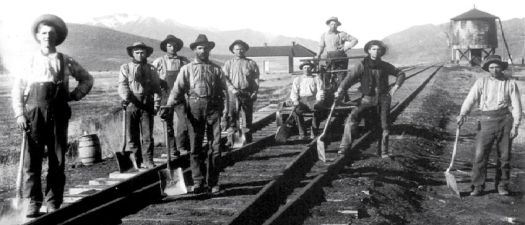In those chaotic hours on the morning of Jesus’ resurrection, two friends (Peter and John) raced, schoolyard-stye, to the tomb. After arriving breathless and after taking in all there was (and wasn’t) to see, they stood dumbfounded, mouth agape, like two boys who’d just seen a rabbit pulled out of a hat or a glamorous assistant disappear inside a small box. And though we’re told that John “believed,” we don’t know exactly what he believed because the Scriptures indicate that the whole brood of disciples were still very much out of sorts, baffled as they’d ever been (which is saying something). Luke tells us that Peter walked home in a stupor, thunderstruck by every remarkable thing he could not understand.
It’s striking, then, how Easter often becomes the day when we haul out our heftiest apologetic guns, overwhelming folks with our rapid-fire arsenal of logical rationale for the veracity of Jesus’ resurrection. Look, I believe it, the whole kit-and-kaboodle. I think Jesus, once a corpse, walked out of that tomb better than new. And I believe Jesus’ resurrection cuts to the heart of everything God intends to do in this world, the very heart of the Good News. I think resurrection matters not only because one man rose from the dead but because of the promise that, through Jesus’ triumph, the whole of creation will one day shake of its grave clothes to shine brilliant and new.
Yet resurrection, with all the hope and possibility it summons, ignites awe and wonder – not a mad dash for sharp pencils and calculators or a whiteboard where we can sketch vast theorems. If we have the fact of the resurrection, but we have none of the bewilderment or the astonishment, none of the unbridled joy at the sheer fantastic lunacy of the whole thing – I wonder if we’ve really got the resurrection at all.
This is not only about the event of resurrection, of course, but about our entire faith. “It is not the task of Christianity,” says Kallistos Ware, “to provide easy answers to every question, but to make us progressively aware of a mystery. God is not so much the object of our knowledge as the cause of our wonder.” If there is nothing in our faith that drops the jaw, that moves us to inexplicable laughter, that unravels our sense of things…If our vision of God never hurls us to our knees or gooses us in sheer pleasure — we should return to the old stories and hear them again.




 There’s more than a little pressure these days to live the grand life, to go full tilt, to know precisely where the world’s deep hunger and your deep gladness collide – and then to live from there. I appreciate the best expression of these reminders. Too many of us exist with a soul-numbing drudgery where we are never asked to exert anything of consequence, nothing that stirs the bones. We are never asked to ponder our true essence or to offer our unique voice. We’re never challenged to risk anything. No one ever pulls us aside to insist how essential it is that we pay attention whenever we believe something with such conviction or imagine some possible future with such clarity that we feel we might go crazy if we do not expend ourselves, even if the foolhardy pursuit likely means our ruin. Too many of us hand away the sturdiest part of ourselves, plug into the machine and acquiesce to the subtle cruelty of imposed expectations. We’re alive, but just barely.
There’s more than a little pressure these days to live the grand life, to go full tilt, to know precisely where the world’s deep hunger and your deep gladness collide – and then to live from there. I appreciate the best expression of these reminders. Too many of us exist with a soul-numbing drudgery where we are never asked to exert anything of consequence, nothing that stirs the bones. We are never asked to ponder our true essence or to offer our unique voice. We’re never challenged to risk anything. No one ever pulls us aside to insist how essential it is that we pay attention whenever we believe something with such conviction or imagine some possible future with such clarity that we feel we might go crazy if we do not expend ourselves, even if the foolhardy pursuit likely means our ruin. Too many of us hand away the sturdiest part of ourselves, plug into the machine and acquiesce to the subtle cruelty of imposed expectations. We’re alive, but just barely.

